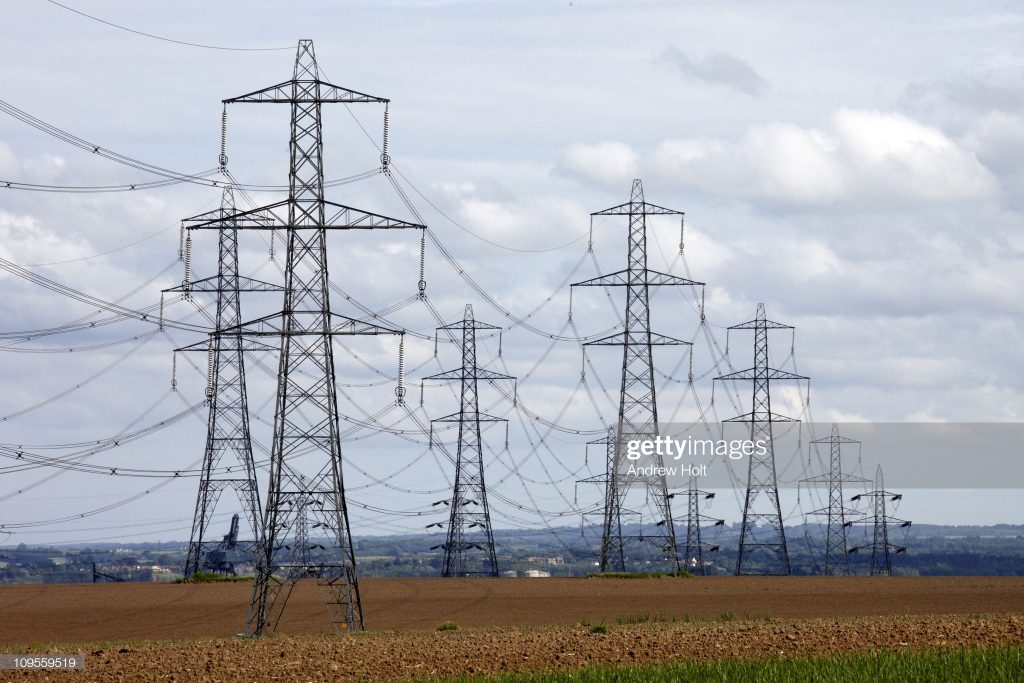Voters in Maine have overwhelmingly rejected a 145-mile-long electricity transmission line through their state that would have brought 1,200 megawatts of renewable hydropower from Quebec to Massachusetts.
The proposed power line was intended to help New England states meet their ambitious emission reduction goals while simultaneously ensuring a reliable power supply.
Maine voters’ directly rejected the project via a ballot initiative, by a vote of 59 percent of those casting ballots opposed to the project compared to 41 percent who favored it.
The $950-million project, first proposed in 2017, was already under construction when the Nov. 2 referendum was held. Developers have already erected 100 power poles in the dense forests of western Maine.
With Maine’s voters having turned down the New England Clean Energy Connect (NECEC), the future of the project is in doubt. The initiative not only banned the construction of “high impact” transition lines along NECEC’s projected path, but it also set a two-thirds-majority requirement from the Legislature for approval of similar projects.
Lawsuit Filed
Saying the initiative breaks valid contracts, Avangrid Inc., the owner of the transmission line quickly filed a lawsuit in Maine Superior Court challenging the legality of the initiative.
“This referendum effective tears up valid contracts, ignores the judicial and executive branches, and goes back in time to retroactively change the rules to stop a project just because it threatens the financial interests of fossil fuel generators,” Thorn Dickenson, CEO of NECEC Transmission LLC, a unit of Avangrid, said in a statement.
The ballot initiative pitted Avangrid, Hydro-Quebec, power line builder Central Maine Power, Maine Gov. Janet Mills, U.S. Energy Secretary Jennifer Granholm, and advocates of green energy against NextEra Energy Resources, owner of New Hampshire’s Seabrook nuclear plant, some existing New England power plants, local conservation organizations, and – based on the results of the referendum – the vast majority of Maine voters.
Proponents and opponents of the project spent over $100 million trying to sway voters.
A Giant Extension Cord
NECEC’s defeat at the ballot box can be traced to several factors.
Mainers have an attachment to their beloved north woods, and many didn’t want to see the wilderness defiled by a long transmission line – likened those quoted in media reports to a giant extension cord – and the hundreds of poles holding it up.
Moreover, most of the power transmitted by the line would in be used in Massachusetts, with Maine getting only a small fraction of the power shipped through it.
A similar project, the Northern Pass line, which would have brought hydropower to Massachusetts via powerlines in New Hampshire, encountered such opposition in the Granite State, the developers abandoned the project in 2019.
Decarbonizing Sans Canadian Hydro
Six New England states have set lofty decarbonization goals over the next decades, with Massachusetts leading the way by enacting legislation mandating “net zero’ greenhouse-gas emissions by 2050.
Developments in Maine and New Hampshire, however, show how difficult meeting these targets will be.
The powerline through Maine was planned to provide 17 percent of Massachusetts electric power supply. With that option – barring a decision by the Maine Supreme Court overturning the referendum’s results – no longer available, policymakers in Massachusetts must scramble to find another non-emitting source.
Locally, good sites for consistent wind and solar power across New England are limited. This means power produced using wind, solar, or other renewable generating sources will have to come from elsewhere and delivered through a massive expansion of the power grid with lines stretching from where the power is generated to where it needs to be delivered.
Net Zero and Powerlines
People are coming to realize that so-called green energy comes with its own set of environmental drawbacks, says Dan Kish, a senior fellow at the Institute for Energy Research.
“Maine’s vote reflects a growing awareness that ‘green energy’ is turning out to be anything but green when the rubber hits the road,” said Kish. “If people want far-flung energy resources, they need to understand this requires far-reaching transmission and the construction of other facilities.
“Some estimates say reaching ‘net zero’ will require a doubling of transmission lines in a very short period of time,” said Kish. “The masterminds in Washington and Wall Street always seem to forget that the ‘flyover country’ they so disdain is populated by real live people who care about their backyards.”
Homemade Power Problems
New England’s politicians find themselves in a mess of their own making, says David Stevenson, director of the Caesar Rodney Institute’s Center for Energy & Environment.
“Massachusetts voters, led by clueless Boston extremists, have elected state leaders who have abrogated their responsibility to maintain an electric grid offering affordable, reliable, and environmentally friendly electricity,” Stevenson said. “These same voters fight the construction of any new electric generating facility in the state, and consequently, the state imports 63 percent of its power from other states, and has the second-highest electricity prices in the contiguous 48 states.
“State leaders have reacted unsuccessfully by trying to tear up forests in New Hampshire and Maine to import hydropower from Canada, when no one in the state would ever consider putting a dam on a Massachusetts river,” said Stevenson. “They are also supporting offshore wind despite likely deaths to critically endangered North Atlantic right whales, and a federal environmental report outlining several negative environmental impacts that have resulted in lawsuits to stop the project.”
Bonner R. Cohen, Ph.D., (bcohen@nationalcenter.org) is a senior fellow at the National Center for Public Policy Research and a senior policy analyst with the Committee for a Constructive Tomorrow.
